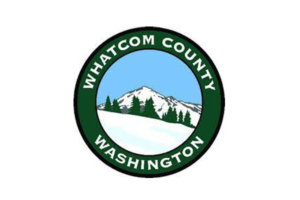As the year comes to a close, many of us are reflecting on the year behind and making plans for the year ahead. I always find it inspiring when the NVA team meets to talk about how we’re doing, what we’re learning and the trends we’re observing.
We use these insights to refine internal processes, set objectives and develop strategies for our business. We learn so much from our clients and from each project, but sometimes it isn’t until we step back and take stock that we start to see patterns. These patterns point us in new directions as we move with this dynamic market and focus our work and thinking on the interesting trends, important challenges and profitable pathways ahead.
As we look back on this year, we see three main trends that will shape our plans for 2016:
1. First, we’ve seen our business shift from a primary focus on food hub development being undertaken by individuals and nonprofit groups to food system initiatives led by municipal planning groups.
We’re excited to see this shift because of the ability of planning groups to access funding and muster a broad base of support across agriculture, business, nonprofit, public health and other sectors, which they are able to use to drive the pre-development work for their communities. We work together to develop the “business case” for a food hub or food enterprise (like a legal case, a business case uncovers a body of evidence that defends or refutes the decision to develop a new business). Once a business case has been established, we reach out to the business community to identify operators, and eventually turn those initiatives over to the private sector for development. This was the pattern that Dane County followed in 2010 with the first feasibility study NVA was involved in, a project that eventually became the Wisconsin Food Hub Cooperative. In our experience this type of public/private collaboration is most likely to lead to the successful launch of a food enterprise. For this reason we are thrilled to be invited to the American Planning Association National Conference to share with the planning community best practices for public sector leadership in food systems development.
2. We’ve seen increasing interest in studies with food as a place-making strategy.
These projects begin with a goal to revitalize a community, redevelop a site and/or repurpose a facility or building, and they often include a hypothesis that the surging demand for good food can be a strategic driver in creating vibrant community spaces. (We wrote about this in a previous post.) Projects this year in Bridgeport, Chicago, outside of Albany, and many more on deck for 2016, suggest to us that this trend is likely to continue. We have forged enthusiastic partnerships that add depth of experience in downtown development, building design and community planning to our core food systems expertise.
3. Perhaps most exciting to us is a shift into food hub and food systems development with a specific focus on health equity and food access.
While this has always been a component of our studies because of its importance to the good food movement in general, today our clients are moving it from the background to the forefront of shaping new food ventures in their communities. What we’re seeing is a specific focus on developing food system strategies and food enterprise business models with public health and food security proponents right at the planning table. Our research includes more purposeful outreach to the myriad food system players that work on these issues, and our recommendations encompass creative strategies for integrating public programs into private ventures that yield mutual benefits.
We see our work with rural grocery stores at the center of this trend. Through two USDA grants, NVA is embarking on a study to determine the baseline feasibility of turning rural grocery stores into food hubs. As we wrote in an earlier post, rural grocery stores are key to healthy food access in many communities, but are closing at an alarming rate. We hypothesize that these businesses could be strengthened by operating a wholesale local food business alongside the existing retail operation. We’ll be reporting our results throughout 2016.
Finally, we recognize the opportunity to bring together the public health, healthcare and business communities to develop food systems interventions that make a lasting impact on the health of individuals. We are forming thought partnerships with a few key organizations to develop programs and strategies under the Food & Health umbrella.
This is an incredibly exciting time to be in good food! And it’s an exciting time at NVA. As our plans unfold, we look forward to working with an expanded set of wonderful clients and strategic partners that extend our capacity and capabilities. We are so excited to be evolving our business to work in the innovative spaces that this vibrant community is embracing.



